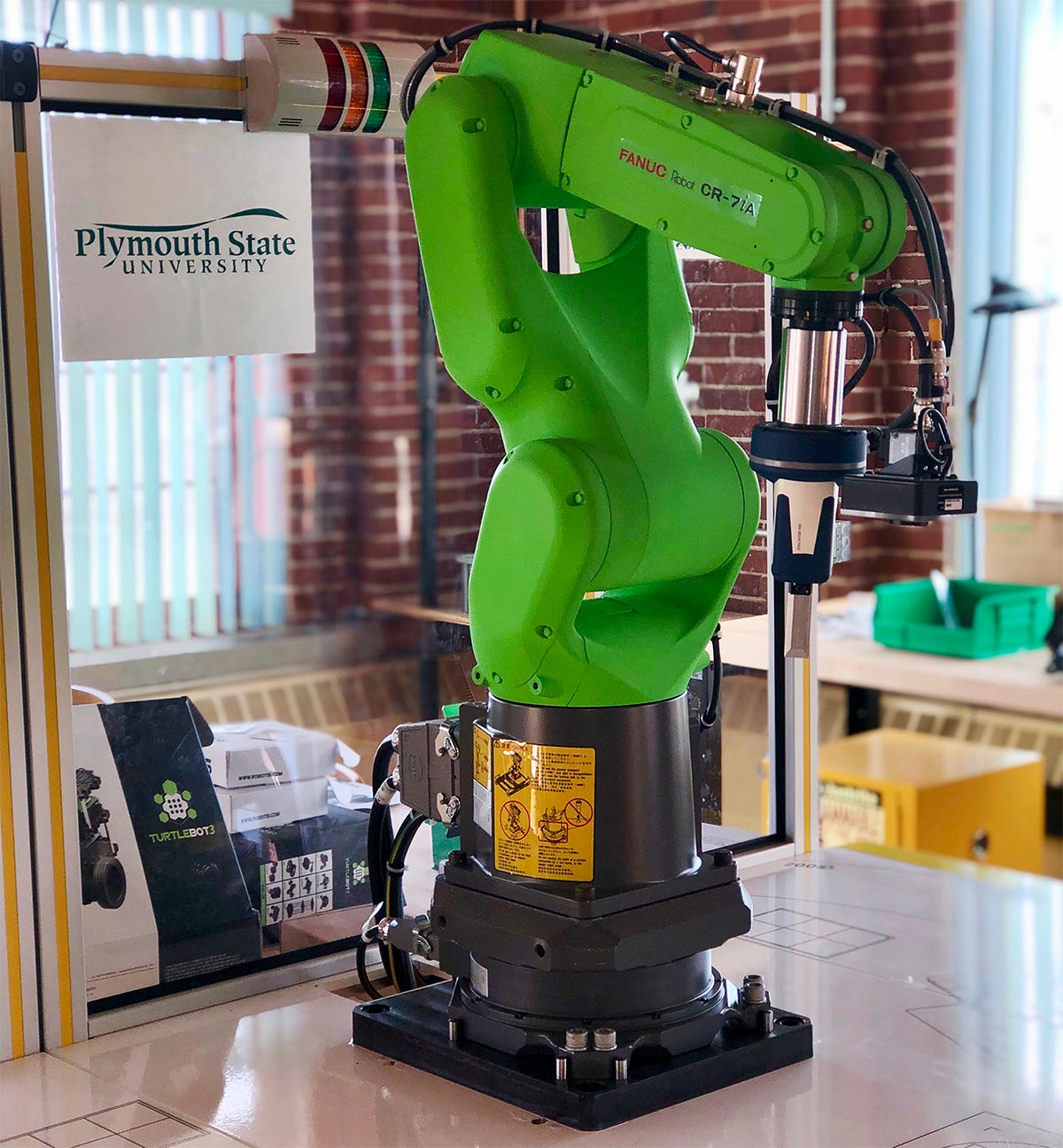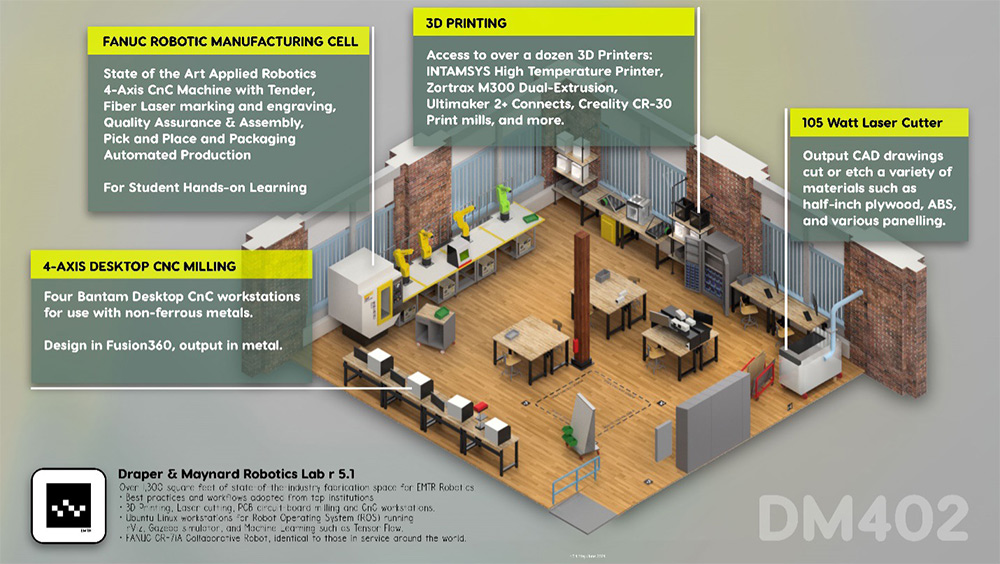Higher Education Re-envisioned
President Donald Birx says the university plans to use the funds to develop the next generation robotics workforce and machine-learning manufacturers with a new, state-of-the-art robotics lab.
“This grant will ensure our that students have the most advanced training, equipment, and tools at their disposal, providing experiential, project-based learning, a central component of our unique Cluster Learning Model,” Birx says. “Access to this cutting-edge technology means access to an emerging job market in New Hampshire’s high-tech sector.”

FANUC, the largest manufacturer of industrial robots in the world, forecasts a 1-million-person shortfall in the workforce by 2027 due to a lack of necessary skills.
There is already high demand today. During a recent three-month period, there were over 200 robotics related job openings in New Hampshire alone, and 4,000 across New England. As a senior member of the Senate Appropriations Committee, US Senator Jeanne Shaheen secured the funding through a congressionally directed spending request that was included in the fiscal year 2022 omnibus spending package, which was passed early in 2022. The US Department of Commerce is the source of the funds, which are allocated by NIST.

Construction and outfitting of the new robotics lab began in October, with some equipment becoming available to students this fall. The lab is expected to be completed by fall 2023 and will be located on the top floor of the historic Draper & Maynard Building, which also houses the University’s innovative makerspace. The 4,500-square-foot, state-of-the-industry robotics lab will include laboratory space, electronics benches, classrooms, and other instructional spaces.
The facility will feature equipment and tools on par with the nation’s top institutions, including 3-D printing, laser cutting, milling, and Computer Numerical Control (CnC) workstations. Additional workstations will run Robot Operating Systems (ROS) and ROS Visualization (rViz) and Gazebo simulators, with CUDA support for working with machine learning, such as TensorFlow. The new facility will even include FANUC collaborative robots, which are employed in industrial settings around the world.
